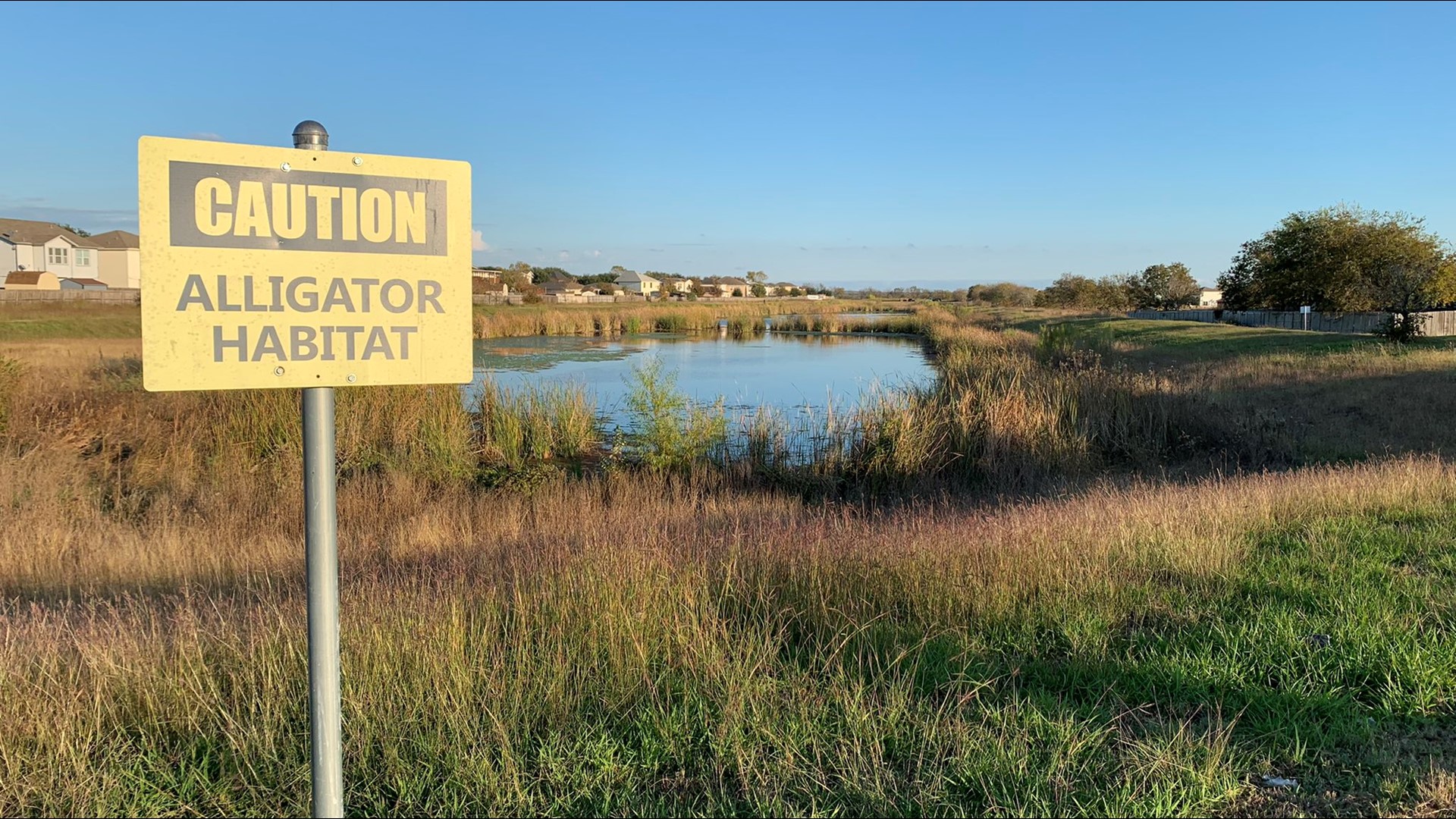DEL VALLE, Texas — On Friday, game wardens from the Texas Parks and Wildlife Department investigated a call to Austin Fire Department that alligators had attacked a dog in a Del Valle neighborhood.
TPWD could not prove the attack happened, but confirmed alligators were living in the retention pond in the Berdoll Farms neighborhood.
"Normally, this time of year, winter, cooler months, alligators are more dormant. They shut down when it comes to feeding, and so we don't see a lot of nuisance complaint calls, so this is certainly an aberration as far as what we're normally dealing with this time of year," Jonathan Warner, who heads TPWD's Alligator Program, said. "That said, we're going to continue to monitor the area, work with the community on best practices in dealing with alligators."
Warner added that alligators living in the Austin area is not unheard of, but it is fairly rare to come across them.
"The core of the species distribution in the state is along our counties, in our coastal marshes, where there's prime nesting and feeding habitat," Warner said.
Neighbors have mixed reactions as to how to handle their reptilian neighbors. Some want them removed, others are OK with coexistence. Warner said that may be for the best.
"For the number of alligators we have in the state, we have relatively few problems when it comes to alligators and people coexisting," Warner said. "If there's any indication or risk to the public, you know, that will get dealt with. But you know, it's important that folks know that alligators are native Texans, and they've been around long before humans were in Texas. So, yeah, as best as possible, number one solution is always to let's leave it be. Let people do what they do, let the alligators do what they do."
As far as rehoming alligators, Warner said that's a last resort for multiple reasons. Alligators are territorial, they know their home environment and will try to get back to it, and removing an apex predator from an ecosystem can threaten the health of that ecosystem.
"When you remove an individual, normally in healthy populations, it's next man up. There's another one that's going to fill that niche. There's another one that's going to take over, whether that would be a dominant breeding male or a nesting female. It's normally just replaced by another alligator. Obviously, a lot of places in [Travis County], we don't have high populations, so there's a possibility that it's just there's not going to be alligators in there anymore and which certainly would have top-down ramifications for the food food web of that local aquatic ecosystem," Warner said.
Reinforcing that alligators will find their way home, Warner said rehoming them may endanger both the animal and other people.
"We treat it, like I said, case-by-case basis," Warner said. "Sometimes relocation is appropriate, but certainly for most adult alligators, we generally don't relocate. If it's a problem animal, like we discussed previously, we will rehome it to a facility or do something along those lines. But again, especially if it hasn't been said, if it's just a normal alligator and alligator habitat, doing alligator things we'll leave it be."
Neighbors in the Berdoll Farms neighborhood said this is the first time alligators have caused any issue, generally keeping to themselves and the retention pond. Parents, however, are continuing to warn their kids to be extra careful around the area.
According to Warner, the "Alligator Habitat" signs around the pond do not designate a protected area, but rather just serve as a warning.
"That particular area hasn't been designated an alligator sanctuary or wildlife sanctuary by TPWD," Warner said. "It's not linked to a permitted facility like a zoo or a farm, and it does appear that these are wild alligators doing wild alligator things."
PEOPLE ARE ALSO READING:

